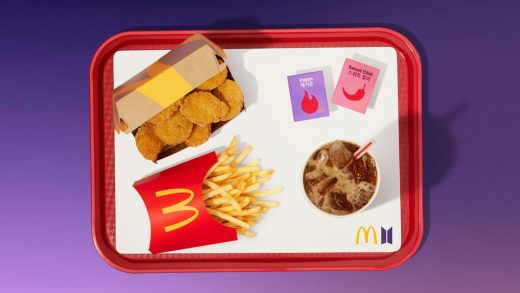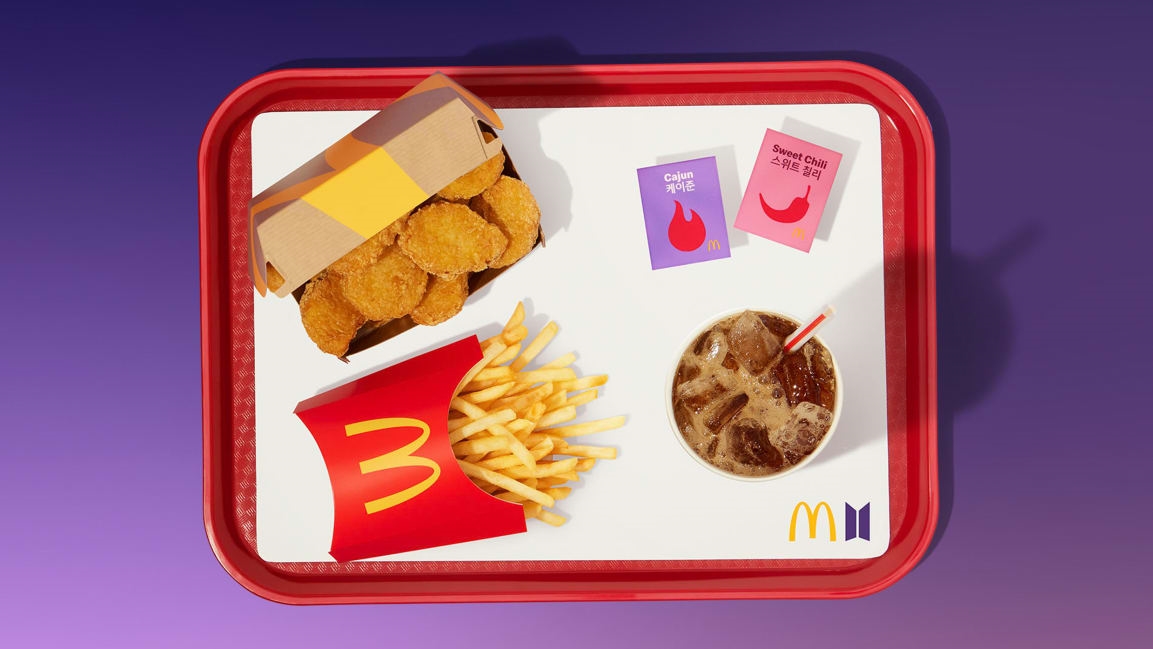How BTS is driving McDonald’s’ biggest marketing play since Monopoly
It’s here. McDonald’s is now selling its much-anticipated “Famous Meal” with Korean pop superstars BTS. Fans in about 50 different markets around the world will be able to order the BTS Meal, a 10-piece McNuggets, medium fries, medium Coke, and, for the first time ever in the United States, Sweet Chili and Cajun dipping sauces adapted from popular dips at McDonald’s South Korea.
Following the lead of its Travis Scott partnership in September, McDonald’s has also partnered with the K-pop superstars on a line of limited-edition merchandise that includes T-shirts, hoodies, flip-flops, as well as more quirky items like a robe and an umbrella. The collection will drop at 7 p.m. ET today, and fans must download the Weverse Shop app to access the goods. Over the next four weeks, McDonald’s will also be rolling out digital content featuring BTS, exclusively on the McDonald’s app in the United States.
The BTS partnership, and its global scale, is a result of the success the brand found in the United States with its previous signature meal deals with Travis Scott and J Balvin last fall. McDonald’s U.S. chief marketing officer Morgan Flatley says that after she presented the results from those previous Famous Meals to her fellow marketing heads from around the world (she declined to share specific data), everyone wanted in, resulting in 50 different markets getting involved in the BTS partnership. The BTS collaboration signals how the company plans to continue pairing famous names with its food and branding as a marquee marketing franchise.
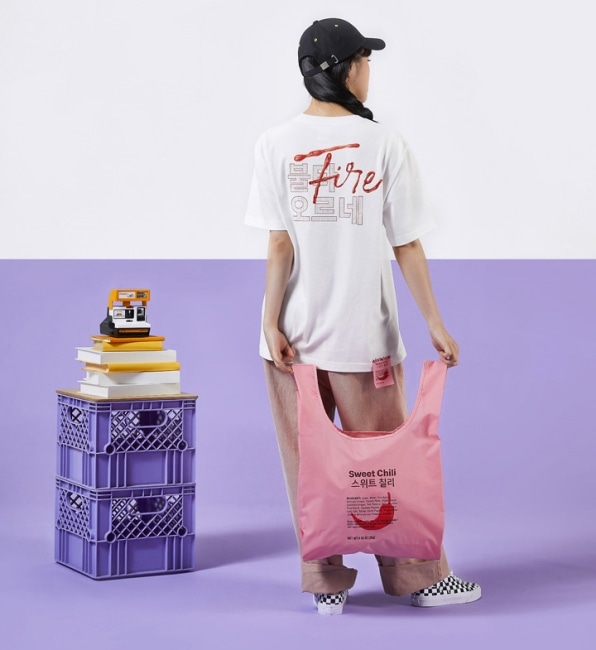
In 2020, McDonald’s laid out a broad, new brand strategy internally called “Accelerating the Arches,” and one of its main pillars was to turn more customers into fans by “investing in new, culturally relevant approaches.” Working with Travis Scott last year opened the company’s eyes to both the appetite for its brand to show up in culture, but also the power of ceding some creative control to the very fans it was hoping to attract. It also boosted sales by 4.6%.
“We thought Travis would be really big, and it was much bigger than we expected,” Flatley says. “We learned that people want to create content with us. With Travis we saw consumers posting videos of pulling up to the drive-thru blaring one of his songs, and saying, ‘You know what I want…’ This whole phenomenon was created with consumers making content with our brand, which we hadn’t seen to that degree (before). So with BTS we’ve really leaned into that. Every week there will be new opportunities for customers to create their own content with the meal, with BTS, and really be able to engage in that way.”
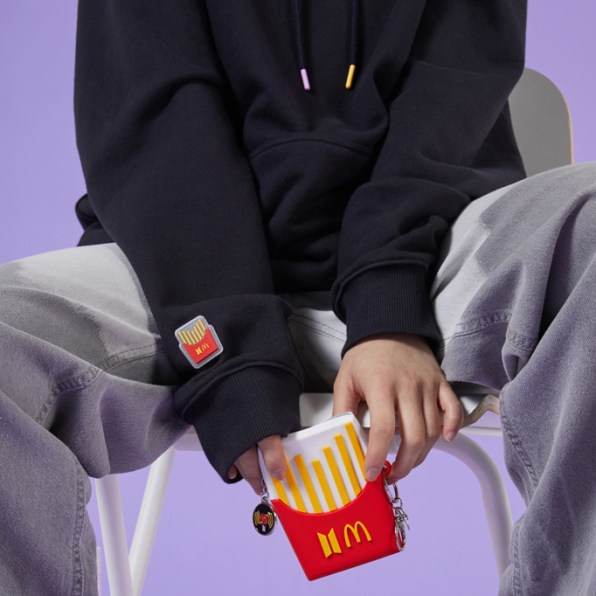
The other major lesson from the Scott and Balvin meals was about just how big the appetite is for both merchandise and other small, physical items to commemorate the moment. For example, seeing people saving, framing, and even selling their Travis Scott meal receipts on eBay, McDonald’s has now built in more special edition aspects to the BTS meal, such as a custom take-out bag for each order. McDonald’s had no idea anyone would want a McNugget pillow that retailed from McDonald’s for $90. They are now available from resellers for hundreds of dollars.
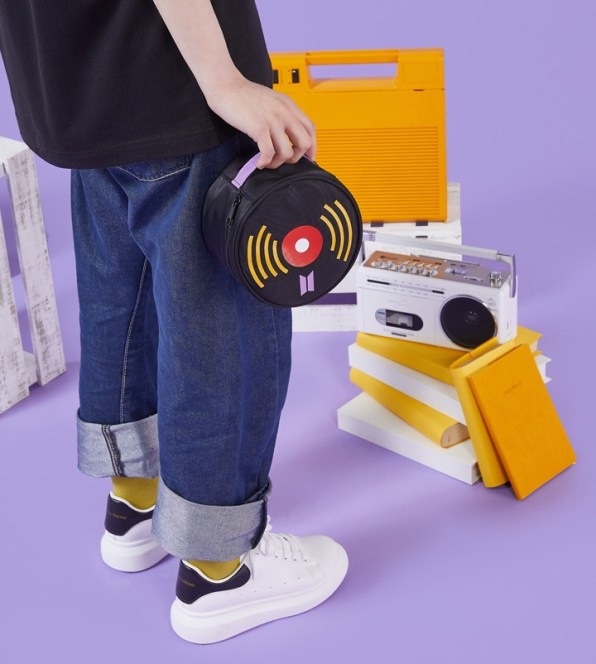
With Wieden+Kennedy, McDonald’s worked with Scott on how he would interpret the brand, and how it could be intertwined with his own brand in a unique way. His line included embroidered print denim shorts, a burger tie, a work jacket, and a full McDonald’s x Cactus Jack-branded basketball uniform. McDonald’s is notoriously, and understandably tight-fisted with its world-famous brand, seldom taking risks or jumping at gimmicky stunts. Even the Scott partnership wasn’t a unanimously popular decision, with the McDonald’s independent National Operators Association telling the company that 470 of the chain’s roughly 1,600 franchisees opposed the collaboration, due to Scott’s lyrics and music work not being entirely family-friendly.
Still, if the brand was going to reach its goal of becoming more culturally relevant, Flately says it needed to get out of its comfort zone. For Flatley, the Scott collaboration, and the excitement around the new BTS partnership, illustrate the benefits of loosening up.
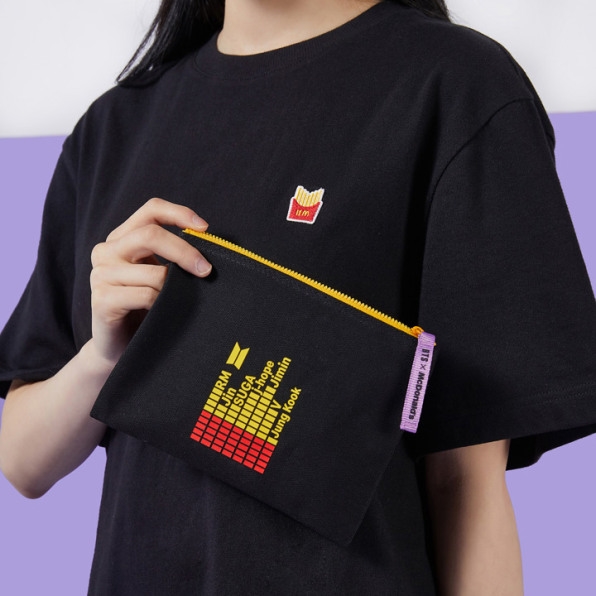
The Famous Meals idea, arguably McDonald’s best marketing initiative since Monopoly (which launched in 1987 and has given out hundreds of millions of prizes around the world, and even sparked an epic crime ring), starts with the brand’s U.S. creative agency Wieden + Kennedy New York. Flatley says the agency pushes the Golden Arches to take risks, both in who they choose to partner with, and how the marketing initiative comes to life. The starting point is simple: Celebrities who love McDonald’s. The agency and brand go through a rigorous evaluation process to make sure each partner really does like the brand and its food.
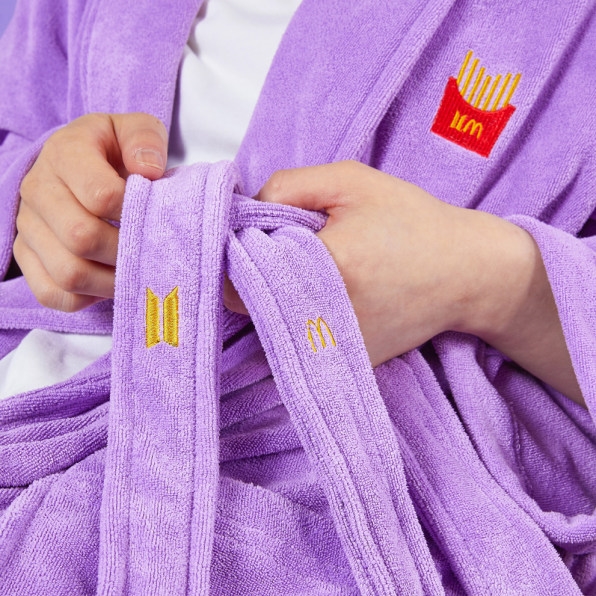
“Wieden+Kennedy really challenge us which makes us better, and they keep us honest and grounded in this,” says Flatley. “They bring us a list, and we have an iterative process in deciding who’s the best pick. The good news is, we now have a pipeline of potential future partners. Some things we wonder about is: BTS is huge, so should we continue to do really big celebrities, is there something that’s a bit more insider? We’ve done a lot in music, what other spaces should we play in? The playground is big, as long as that central insight is true.”
In December, McDonald’s decided to see what fictional Famous Meals would look like by creating signature meals for holiday movie characters like Rudolph, the Grinch, and Die Hard‘s John McClane. Expect the brand to continue to push that kind of experimentation.
“The insight of, even the most famous people have their favorite order, is so wide open,” says Flatley. “This has shown us this rabid fandom that exists if we can find the right ways to unlock it. I kind of knew it was out there, but to see it in action, it’s helping us understand that this fandom exists, we just need to find creative, interesting, unexpected ways to unlock it.”
Fast Company , Read Full Story
(65)

